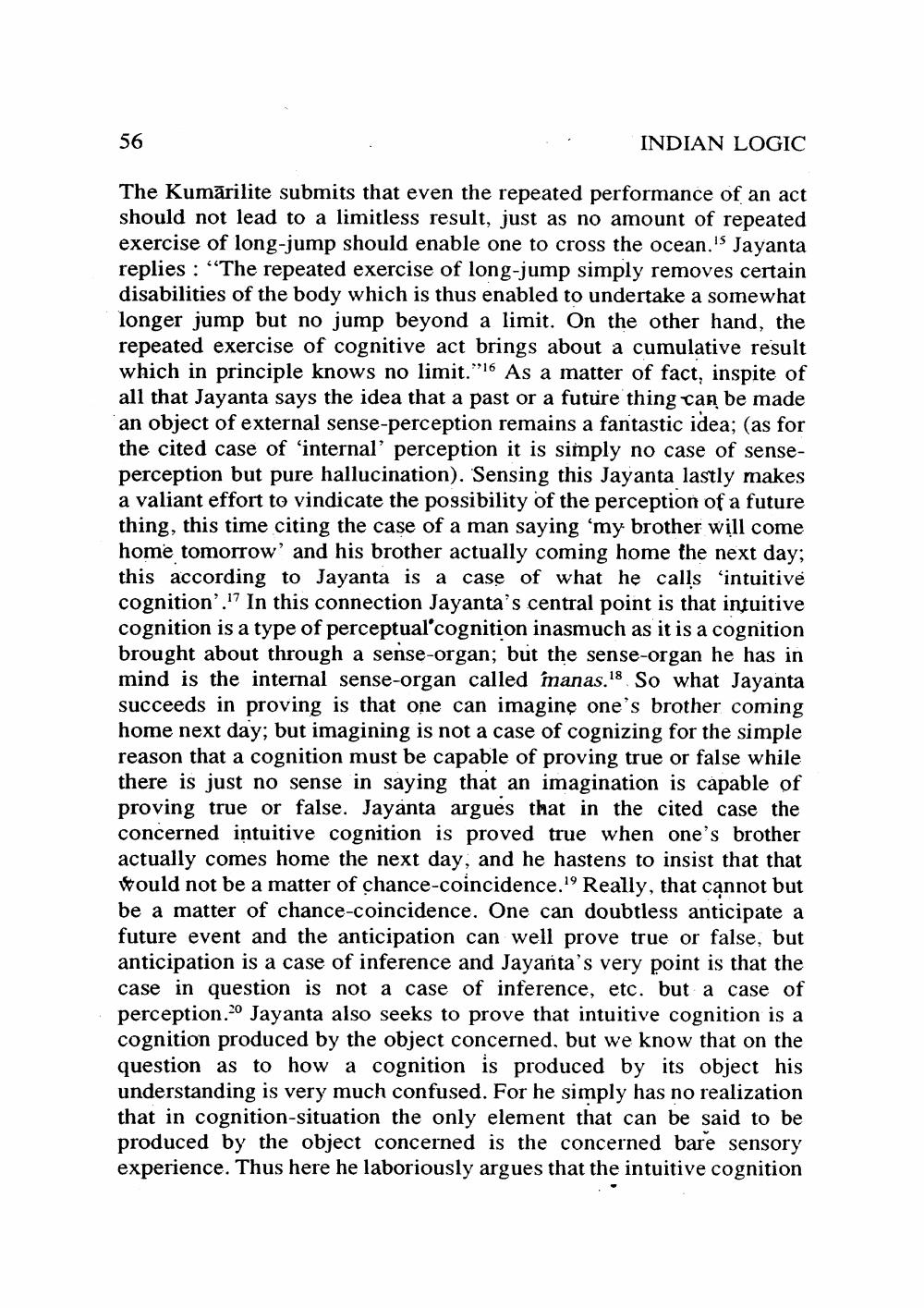________________
56
INDIAN LOGIC
The Kumārilite submits that even the repeated performance of an act should not lead to a limitless result, just as no amount of repeated exercise of long-jump should enable one to cross the ocean.'s Jayanta replies: "The repeated exercise of long-jump simply removes certain disabilities of the body which is thus enabled to undertake a somewhat longer jump but no jump beyond a limit. On the other hand, the repeated exercise of cognitive act brings about a cumulative result which in principle knows no limit."16 As a matter of fact, inspite of all that Jayanta says the idea that a past or a future thing can be made an object of external sense-perception remains a fantastic idea; (as for the cited case of 'internal' perception it is simply no case of senseperception but pure hallucination). Sensing this Jayanta lastly makes a valiant effort to vindicate the possibility of the perception of a future thing, this time citing the case of a man saying 'my brother will come home tomorrow' and his brother actually coming home the next day; this according to Jayanta is a case of what he calls 'intuitive cognition'.17 In this connection Jayanta's central point is that intuitive cognition is a type of perceptual'cognition inasmuch as it is a cognition brought about through a sense-organ; but the sense-organ he has in mind is the internal sense-organ called manas.18 So what Jayanta succeeds in proving is that one can imaginę one's brother coming home next day; but imagining is not a case of cognizing for the simple reason that a cognition must be capable of proving true or false while there is just no sense in saying that an imagination is capable of proving true or false. Jayanta argues that in the cited case the concerned intuitive cognition is proved true when one's brother actually comes home the next day, and he hastens to insist that that Would not be a matter of chance-coincidence. Really, that cannot but be a matter of chance-coincidence. One can doubtless anticipate a future event and the anticipation can well prove true or false, but anticipation is a case of inference and Jayanta's very point is that the case in question is not a case of inference, etc. but a case of perception.20 Jayanta also seeks to prove that intuitive cognition is a cognition produced by the object concerned, but we know that on the question as to how a cognition is produced by its object his understanding is very much confused. For he simply has no realization that in cognition-situation the only element that can be said to be produced by the object concerned is the concerned bare sensory experience. Thus here he laboriously argues that the intuitive cognition




